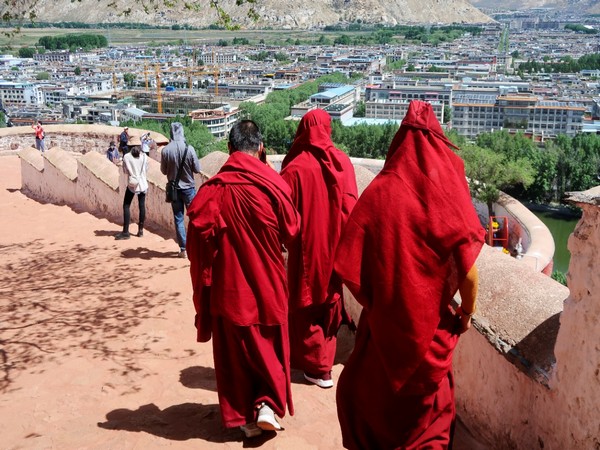The repression of religion in Tibet has escalated over the decades and China’s constant attack on them is an integral part of their bigger scheme of asserting its complete control over the Lhasa.
This year, in January, a 99-foot tall statue in Drago county in the Tibetan Autonomous Prefecture was demolished along with 45 traditional prayer wheels set up for use by Tibetan pilgrims and other worshippers.
After the news of destruction flourished, Chinese authorities arrested 11 Tibetans and sent them to labour camps in the region for spreading the news.
But this incident doesn’t stop China from committing another crime. Another statue of Tibetan Buddhist, Padmasambhava, also known as Guru Rinpoche was destroyed. It was three stories high at the Chanang monastery in the same region of Drago.
The Chinese authorities in Sichuan province are forcing the Tibetan monks in Drago County to take the blame and sign the affidavits for the destruction of sacred statues, Tibet Press reported citing Radio Free Asia.
After the reports of the destruction flourished in the international community, the Chinese community changed its course and tried to play the safe game by accusing the Tibetan monks in Drago of the destruction of the Buddhist statues and also compelling them to sign documents to prove their false fact.
This has slowly and gradually become a common issue in Tibet. The number of political prisoners in Tibet has also increased drastically over the years due to China’s oppressive rule and false convictions. Some are released after years of torture in the worst state possible while many end up losing their lives in the prisons or with their families getting no information about their whereabouts.
Gendun Lhundrub, a Tibetan writer and poet who was arrested in the year 2020 and whose whereabouts remained unknown until now is being detained at a detention center in Siling. He was being monitored by the Chinese authorities for signs of political dissent before being detained but was later arrested on December 2, 2020, while he was on his way to attend a religious debate in Rebgong.
The detaining of Tibetan writers and artists who are seen as threats to the Chinese rule and who promote the Tibetan national identity happens more frequently than ever.
The Tibetan language and religion are seen as a threat to China’s ambitious goal and this is the reason that their mere practice or promotion of it is crushed by the Beijing authorities.
According to the publication, the forced demolitions of Buddhist institutions, statues, and relics will continue until there is none left in Tibet. Tibetans will continuously be stopped from practising their religion or expressing their respect and faith toward their holiness, the 14th Dalai Lama.
Raising Tibet’s issue on the international platform has been the main struggle of the Tibetan’s fight for freedom. Tibet’s state has degraded over the decades and the brutality calls for immediate help.

